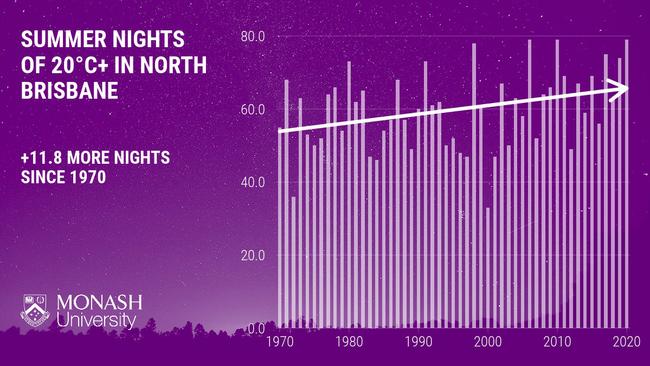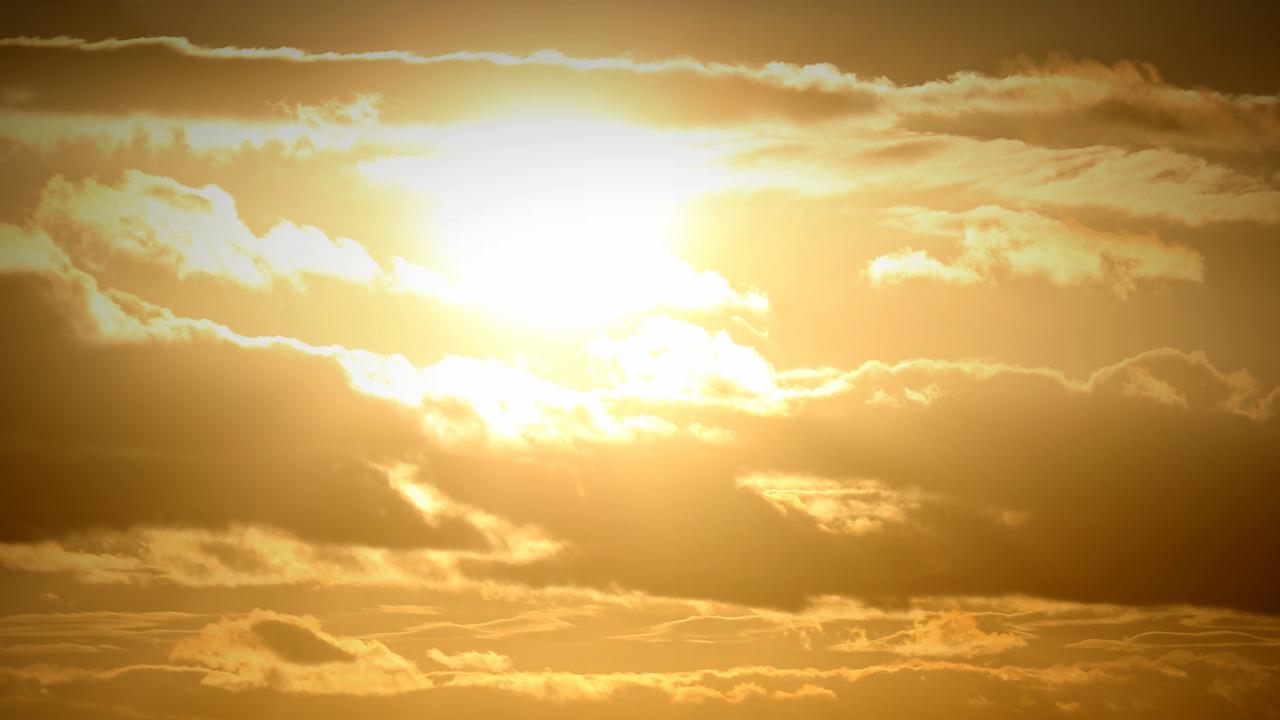Long term data shows February overnight temperatures are warmer than they were 50 years ago
Dr Christa Pudmenzky explains how north Brisbane's summer climate is shifting. Plus, what do greenhouse gases have to do with warmer temperatures?

HyperLocal
Don't miss out on the headlines from HyperLocal. Followed categories will be added to My News.
North Brisbane residents can expect a hot humid weekend with showers unlikely, hitting a top temperature of 31 degrees on both Saturday and Sunday.
With temperatures like these, cooler nights are a welcome relief from the heat.
But summer nights aren't bringing the cool change they once did.
During summer, north Brisbane experiences around 66 nights reaching at least 20 degrees.
That's almost 12 more nights than we saw 50 years ago.
Last summer smashed this average, with 79 nights reaching at least 20 degrees.
Voices from your community
It's not just nights getting warmer - the weather bureau data also shows similar trends occurring during the day.
Margate resident Melanie said it meant she spent less time in her garden.
"I struggle to grow fruit, veggies and herbs at home," she said.
"Everything is so dry, and trees and plants are dying."
Melanie also found it harder to buy fresh produce.
"Fruit, vegetables, meat and seafood is very expensive now, the quality of fresh fruit and vegetables has decreased, and food doesn't stay fresh for as long," she said.
Community voices like Melanie's tell us how residents and business owners in north Brisbane feel about their local climate. If you would like to contribute your voice to our column, you can fill out our 5-minute survey here.
Fast fact
North Brisbane's warming patterns are consistent with global climate change trends.
The main cause of global warming is an increase in greenhouse gases in the air - particularly carbon dioxide.
Carbon dioxide is produced when we burn fossil fuels like coal, gas and oil, mostly for energy production and transportation.
Carbon dioxide has been increasing since the industrial revolution began in the 18th century.
Dr Christa Pudmenzky is a climate scientist at the University of Southern Queensland.
This column is part of a collaboration between the Monash Climate Change Communication Research Hub and News Corp to deliver hyperlocal weather and climate information.
Follow the Hub on Twitter to join the conversation.


